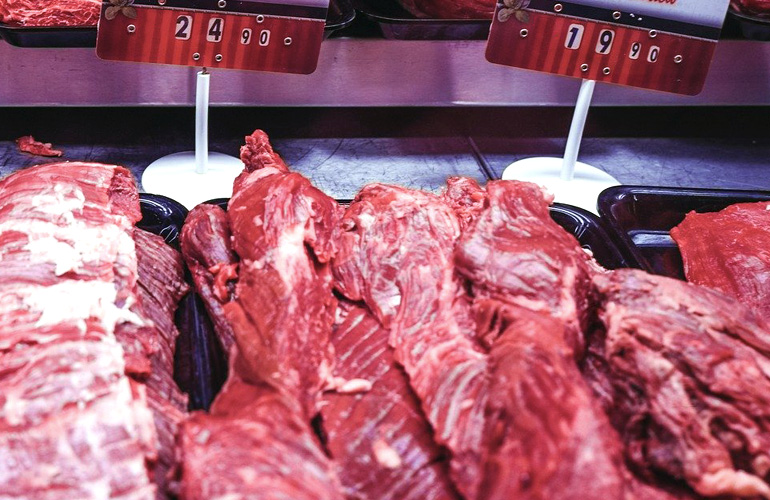Meat Shortages from COVID-19 are Here and It’s Already Affecting You

Due to widespread outbreaks of COVID-19 among several meat processing facilities around the United States, a troubling disruption in the food supply chain has resulted in a shortage of fresh meat products that consumers are now realizing.
Smithfield Farms, one of the largest pork suppliers in the country, shut down its massive processing facility in South Dakota on April 12. This single plant processes about 5% of all pork products in the United States. The location shut down after more than 300 workers tested positive for COVID-19. Another facility in Illinois closed on April 24.
On April 13, JBS USA closed its doors after at least two employees died from Coronavirus and dozens of others tested positive. This facility reportedly processes around 5% of all beef in the Country.
Tyson Foods Inc, Cargill Inc, Perdue, Jennie-O, and several additional meat facilities have also experienced plant closures and other dramatic reductions in output capacity due to Coronavirus infections and employee walkouts.
National grocers like Kroger and Costco have released statements warning of the reduced supply, and have begun instituting policies in some locations to curb panic-buying and further inventory shortfalls. Similar to what we have seen with toilet paper and sanitation products, many stores are enforcing a limit of 2 or 3 packages of fresh meat per shopper.
Some fast food restaurant chains have also begun suffering the effects of the shortage. Certain Wendy’s locations in several states have resorted to temporarily removing burger and beef items from the menu altogether.
On April 28, President Trump signed an order that declares the food supply chain to be included under the Defense Production Act. Invoked in recent weeks by the Trump to compel certain manufacturers to produce medical equipment, the Defense Production Act has been utilized by presidents since the 1950s to ensure the production of “scarce and critical material essential to the national defense.”
Some experts say that the problems we’re facing are not a food production issue, but a food supply issue. It’s said that there is plenty of food in America, but it becomes a supply chain issue when that food cannot reach the consumer. Associate Professor of Supply Chain Management at Syracuse University, Julie Niederhoff, has stated that we are not likely to face an outright food crisis. “We’re not going to run out of food. We’re going to run out of maybe your one particular favorite foods.”
Adding more frustration to an already-complicated supply chain situation are reports that farms around the country are literally destroying crops and livestock that they cannot sell. Many smaller operations that are not part of the same chain that supplies national grocery stores are stuck with animals, produce, and inventory that they can do nothing with. Millions of chickens in several states have been euthanized, fresh milk is getting dumped, and farmers are tilling rotted, unpicked vegetables right back into the earth.
Most of these food producers’ customers were commercial or institutional establishments like restaurants, cruise ships, stadiums, and schools. Because those types of places have been shuttered entirely, and because supply logistics have not yet caught up with the shift in demand, catastrophic amounts of food are simply going to waste.
The effects of this disruption in the meat supply are expected to be felt by consumers for up to several months. Average meat prices have risen since last month, and are likely to rise further as supply continues to fall. Many are hoping that a concerted change in supply chain management, and coordination with those food producers whose inventory is being wasted will begin to ease the pain sooner rather than later.

